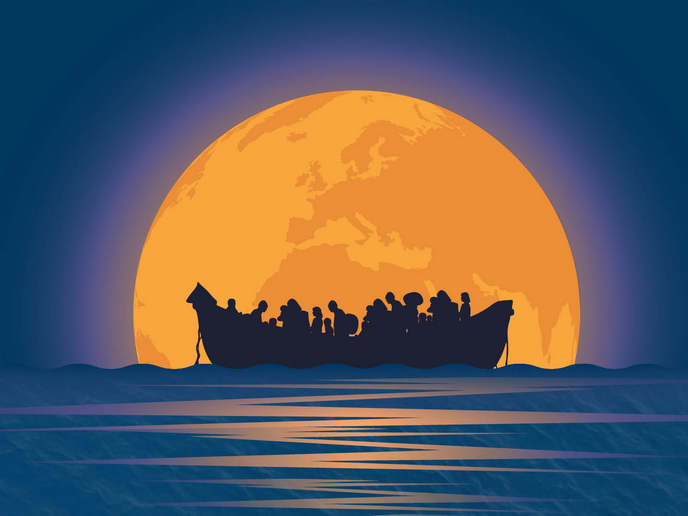Counteracting migrant smuggling: a multifaceted approach to fight migrant smuggling
People smugglers exploit land, sea and air routes for migration into and within the EU. These journeys can be extremely dangerous, particularly when they take place by sea, and often expose migrants to life-threatening risks and violence from smugglers. Smuggling networks are also closely linked to other forms of serious and organised crime such as terrorism, money laundering and human trafficking. While not all smuggled migrants are trafficked, and not all trafficked individuals are smuggled migrants, those who do become victims of smuggling could also then become victims of trafficking, which is when people are moved for purposes such as forced labour, sexual exploitation and other forms of modern slavery. As such, the issue demands a firm response at both the EU and global level. Research and innovation projects supported by the Horizon 2020 funding programme have achieved significant results in studying and developing tools that can help, fighting the smuggling of migrants and of human trafficking, and enhancing maritime surveillance. Greater cooperation among relevant authorities, support for victims of smugglers, and the deployment of advanced technologies and reinforcement of investigative capacities are all examples of how progress can be achieved in addressing this humanitarian challenge. Recent legislative proposals targeting migrant smuggling place a notable emphasis on enhancing cooperation among law enforcement agencies and the role of Europol, which has also been strengthened through the establishment of the Europol European Migrant Smuggling Centre. Moreover, the Global Alliance to Counter Migrant Smuggling, launched concurrently with this legislative package, underlines the significance placed on cooperation with third countries. Here, too, EU-funded research is playing a role. Improvement of cooperation mechanisms among government officials, law enforcement and NGOs will enable victims of migrant smugglers to be more easily identified and protected. Finally, increased maritime surveillance plays a vital role in detecting and countering migrant smuggling activities along sea routes by enabling authorities to identify and intercept vessels that may be used by smugglers, as well as help search-and-rescue missions for migrant ships in distress. In these ways, EU-funded research is helping to make the world a safer place for both migrants and EU citizens. The projects featured in this Pack include a range of interventions, from enhancing law enforcement capabilities and improving maritime surveillance to providing better support services for victims. The goal of these initiatives is to address migrant smuggling and improve cooperation among local and national authorities and NGOs and share best practices among EU Member States. The COMPASS2020 project used AI-backed networks of manned and unmanned surveillance assets for long-range, persistent monitoring to increase the situational awareness of coastguards and maritime authorities, to improve capabilities of both search-and-rescue and countering criminal activities at sea. The EFFECTOR project applied AI to maritime surveillance to improve decision support and enhanced collaboration for maritime surveillance. By leveraging AI and big data technologies, PROMENADE created automated solutions for improved vessel tracking and anomaly detection. Humanitarian organisations need reliable data to know when and where migrants will be arriving, and what vulnerabilities and protection needs they may have. The CRiTERIA project developed the Human Security Filter, which uses both official databases and open-source information to identify vulnerable migrants, enabling first responders to offer adequate care upon their arrival. HEROES explored how best to apply the latest technological advances and provided new strategies to combat human trafficking and child sexual abuse and exploitation, and to protect their victims. ITFLOWS created the EUMigraTool to help NGOs to predict and manage reception and protection of migrants. Finally, MIGNEX contributed to knowledge for more coherent and effective migration management through evidence-based understanding of the link between development and migration.



